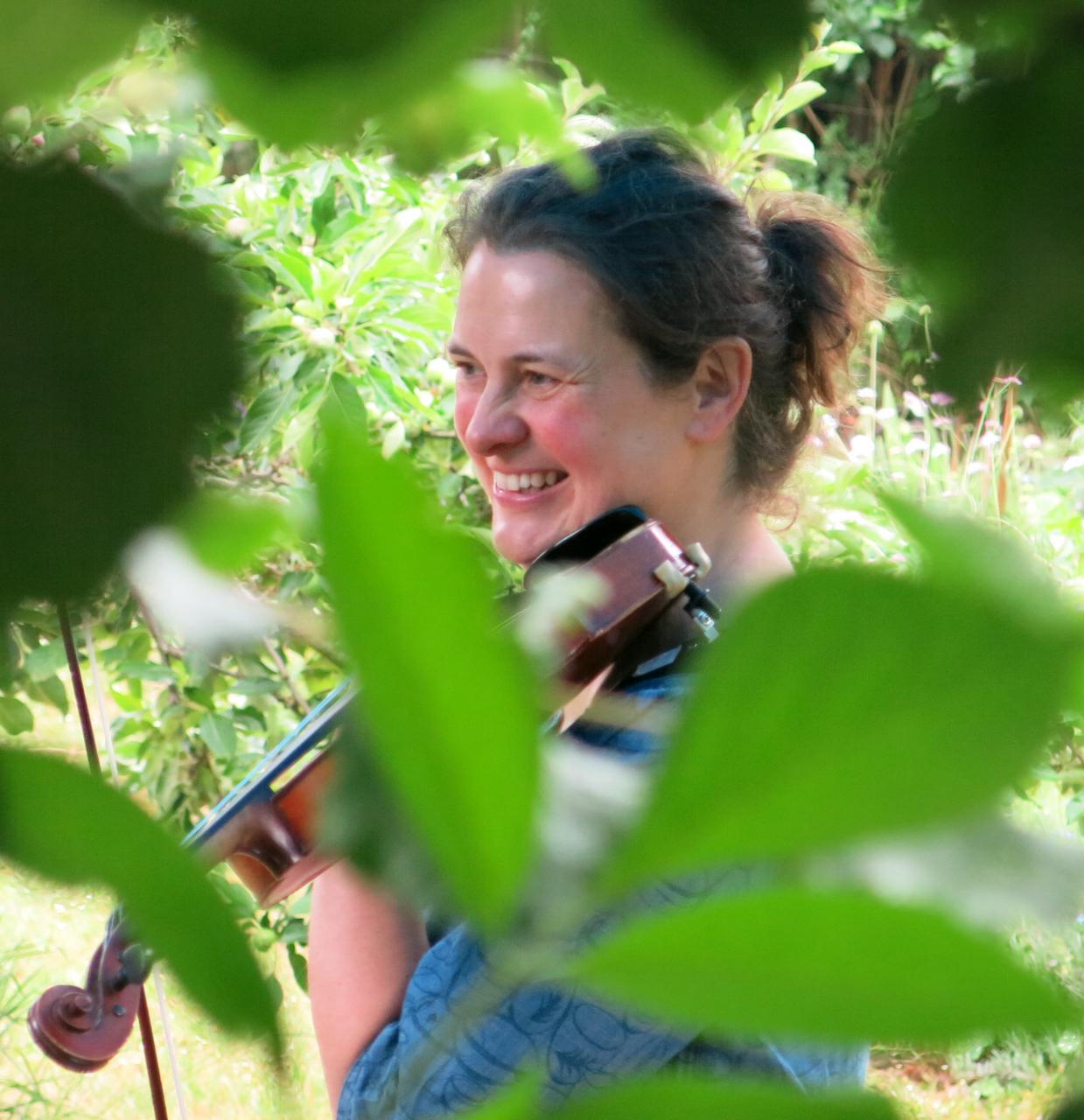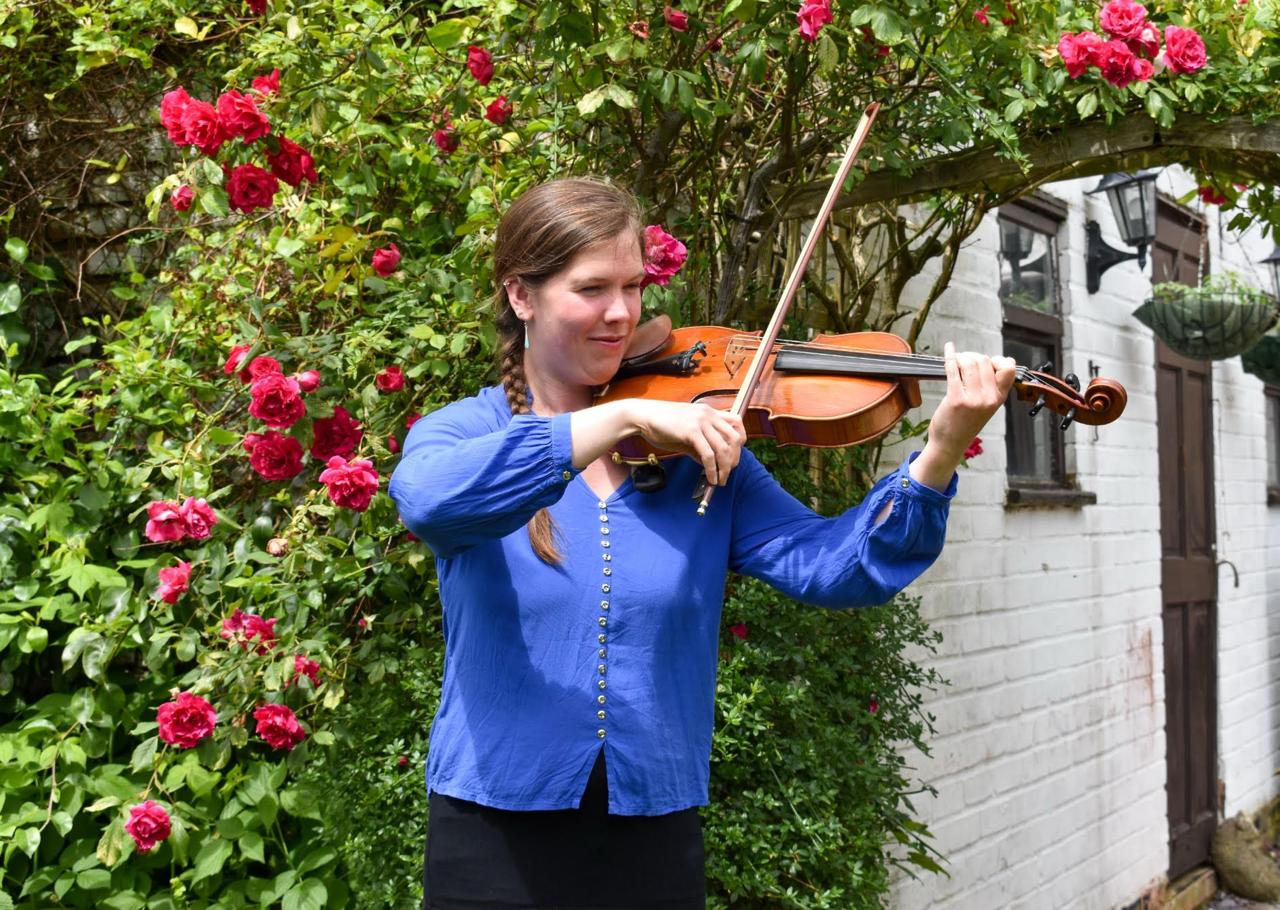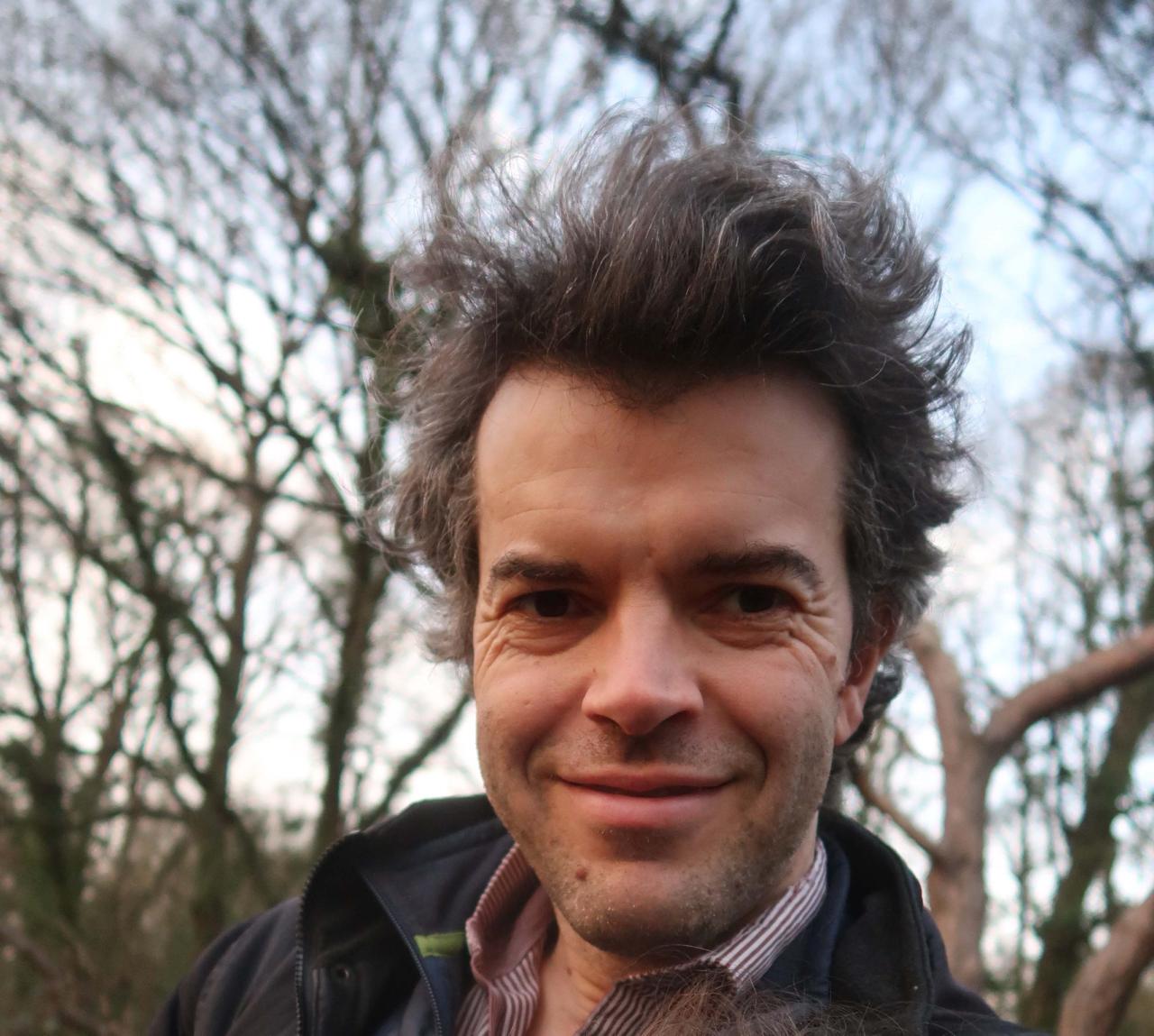Spring Concert 2025
Conductor: Oliver TillLeader: Tina BowlesMozart - Sinfonia Concertante K 364 - Soloists Lucy Hewson (Violin) and Nichola Blakey (Viola)Rachmaninoff - Symphonic Dances - with artwork projections by William Lindley |
|
London Medical Orchestra's Spring concert showcases the works of two musical giants, Mozart and Rachmaninoff, composed during their time abroad and in exile. |
 |
|
Following our successful collaboration in 2022 (The Firebird), we have commissioned artwork projections from William Lindley for Rachmaninoff's Symphonic Dances |
 |
This concert is in support of Rare Dementia Support |
Programme Notes
Wolfgang Amadeus Mozart (1756 - 1791): Sinfonia Concertante
Born and raised in Salzburg (Austria), Mozart showed enormous talent from an early age, becoming one of the greatest composers in the history of Western Classical music. He wrote over 800 works during his lifetime, including some of the most famous and well-loved pieces of symphonic, chamber, operatic, and choral music. His chamber music is admired for its melodic beauty, its formal elegance and its richness of harmony and texture.
Mozart composed his Sinfonia COncertante in 1779 while on tour to Mannheim and Paris. It was in Mannheim that he was introduced to the idea of 'Sinfonia Concertante' - a meld of symphony and concerto for multiple soloists, recapturing some of the form of the defunct 'Concerto Grosso'. In his own Sinfonia Concertante for violin and viola, he also made use of the technique known as 'scordatura', in this case asking the solo viola to be tuned a semitone sharper. The increased tension in the strings gives the viola a more brilliant sound, so better matching the violin. (The solo viola part is written in D major while the other players are in E flat major.)
Mozart's Sinfonia Concertante follows the conventional structure of the Classical period; a spirited opening movement, a slower and sensitive Andante, followed by an energetic and exuberant Rondo. It is said this work marked a turning point in Mozart's career, a blend of virtuosic display and profound expression emblematic of the composer's mature style.
Sergei Rachmaninov (1873 - 1943): Symphonic Dances
Rachmaninoff was a Russian composer, virtuoso pianist and conductor. He is widely considered one of the finest pianists of his day and one of the last great Russian Romantic composers.
The Symphonic Dances was Rachmaninoff's final masterpiece, composed in the USA after he fled Europe in 1939. He dedicated it to Eugene Ormandy as a showpiece for the Philadelphia Orchestra, and it received its first performance under his baton in January 1941.
Written in three movements, the Symphonic Dances brings together fragments from Rachmaninoff's earlier works melded with influences from modern America. The first movement is harmonically complex and violent, perhaps creating a vision of war and chaos in Europe with a contrasting nostalgic vision of the world left behind in the alto saxophone solo, and a quote from his first symphony. The second movement is a grotesque waltz which eerily fades away at the end; a waltz for ghosts? Finally, the third movement is heralded by the Dies Irae, the song for the dead, and bells signifying doom. Then appears a theme from Rachmaninoff's All-Night Vigil (Op 37, 1915) representing Resurrection, introduced by the cor anglais and violas. A battle takes place between the two themes; at the end of the score appears the word 'Alleluja', as the Resurrection theme proves victorious. Rachmaninoff provided no explanations; all is left to our imagination.
Programme notes by Mary Dentshuk
The Soloists
 Lucy Hewson - Violin
Lucy Hewson - Violin
Lucy lives in Bath with husband Tim and two entertaining teenagers. She is a member of the Pump Room Trio, Europe's longest running resident ensemble, performing piano trio music every day for afternoon tea at Bath's magnificent Georgian Pump Room.
After growing up on the Midlands, Lucy studied at Royal Holloway, University of London, then with Simon Fischer adn Clare Thompson at Guildhall School of Music and Drama and Trinity Laben.
Lucy has had a wonderful time exploring the Mozart and is thrilled to have the opportunity to perform with Nichola and the LMO.
 Nichola Blakey: Viola
Nichola Blakey: Viola
Nichola grew up in Manchester, but came to London to study Viola at the Royal Academy of Music with James Sleigh.
She regularly performs with Solomon's Knot, Spiritato! and the Academy of Ancient Music with historical violas.
Aside from music, she is a teacher of the Alexander Technique, and lives in Welling, Kent, with her partner Tim and their not-so-small-now son Christopher.
Nichola is excited to have the opportunity to perform this amazing work with such a wonderful friend and colleague, and with her beloved LMO.
 William Lindley: Artwork Projections
William Lindley: Artwork Projections
I am a visual artist with a background in architecture, regeneration, heritage and research. My work is rooted in drawing and also encompasses inaglio printmaking, projection, painting, photography, animation, sound and installation, interweaving traditional techniques with contemporary processes.
I work as an individual, on participatory projects and in collaboration with other artists and musicians. Commissioned work includes installations for The Wilson in Cheltenham, Newark Park, Boston Stump, The Master Shipwright's House, Bolsover Castle, Llanthony Secunda Priory, Lambeth Country Show, Riverlight Festival, The Black Shuch Festival, Gilbert White's House, and WeShine Portsmouth.
The Concert Charity
 A message from our friends at Rare Dementia Support:
A message from our friends at Rare Dementia Support:
Thank you to the London Medical Orchestra and friends for supporting The National Brain Appeal to raise funds for Rare Dementia Support.
Rare Dementia Support (RDS) is a UCL-led collaborative service funded by The National Brain Appeal. It offers specialist social, emotional and practival support services for individuals living with, or affected by, a rare dementia diagnosis. RDS is committed to offering a free service, supporting more than 7000 people through support groups across the UK and internationally.
In 2026 the world's first Rare Dementia Support Centre will open in London funded by the National Brain Appeal. The centre will privde a permanent home for the service, and will lead in the provision of support, education and research on support for indivduals affected. The funds raised at this concer will help to provide support calls, meetings and webinars, as well as research and education.
To find out more please visit https://www.nationalbrainappeal.org/rare-dementia-support or to find out more about Rare Dementia Support please visit https://www.raredementiasupport.org Registered Charity No 290173
The Concert Players
Conductor: Oliver TillFirst Violins
- Tina Bowles (Leader)
- Rachel Barbanel
- Mary Dentschuk
- Steve Dobson
- Ed Lowther
- Catherine Menon
- Steve Rowlinson
- Máire Sloman
- Louisa Till
- Nichola Blakey (Principal)
- Ursula Antolik
- Lucy Atherton
- Leila Boushehri
- Poppy Boyd-Taylor
- Mark Bullard
- Susan Grayeff
- Aytaç Mevlit
- Jak Poore
- Gerry Shortall
- Jan Toporowski
- Michiko Ward
- Bronwen Whitaker
- Geoffrey Irwin (Principal)
- Tom Boswell
- Nigel Franklin
- Rachel Gibson
- Winston Ho
- Jamie Masters
- Mark Norris
- Josephone Tsakok
- Josh Salter (Principal)
- Hilary Evans
- Libby Fogg
- Hannah Franklin
- Shirley Franklin
- Janet Hermann
- Helen Mabelis
- Sopika Toumazi
- Charlotte Youngs
- Darren Edwards
- Francois Moreau
- Jen Morgan
- Nick Ibba
- Graeme Scott
- Natalie Ryan
- Mit Lahiri
- Ming Li Kong
- Adrian Hall
- Adrian Hall
- Lindsey Glen
- Ian Merryweather
- Rita Porzi
- Rosalind Hedley-Miller
- Louise Johnston
- Mark Stopard
- Simon Ashdown
- Tom Brett
- Susie Hubbard
- Julie Rooke
- Glyn Jones
- Lucas Liceranzu
- Peter Rolinson
- William Barnes-McCallum
- Chris Dicken
- Rob Heath
- Dominic McGonagle
- Stuart Delve
- Sharon Moloney
- Jak Poore
- Tim Saxby
- Jason Szczerbicki
- Elliott Wilkes
- Joanna Cheng
- Anna Phillips



